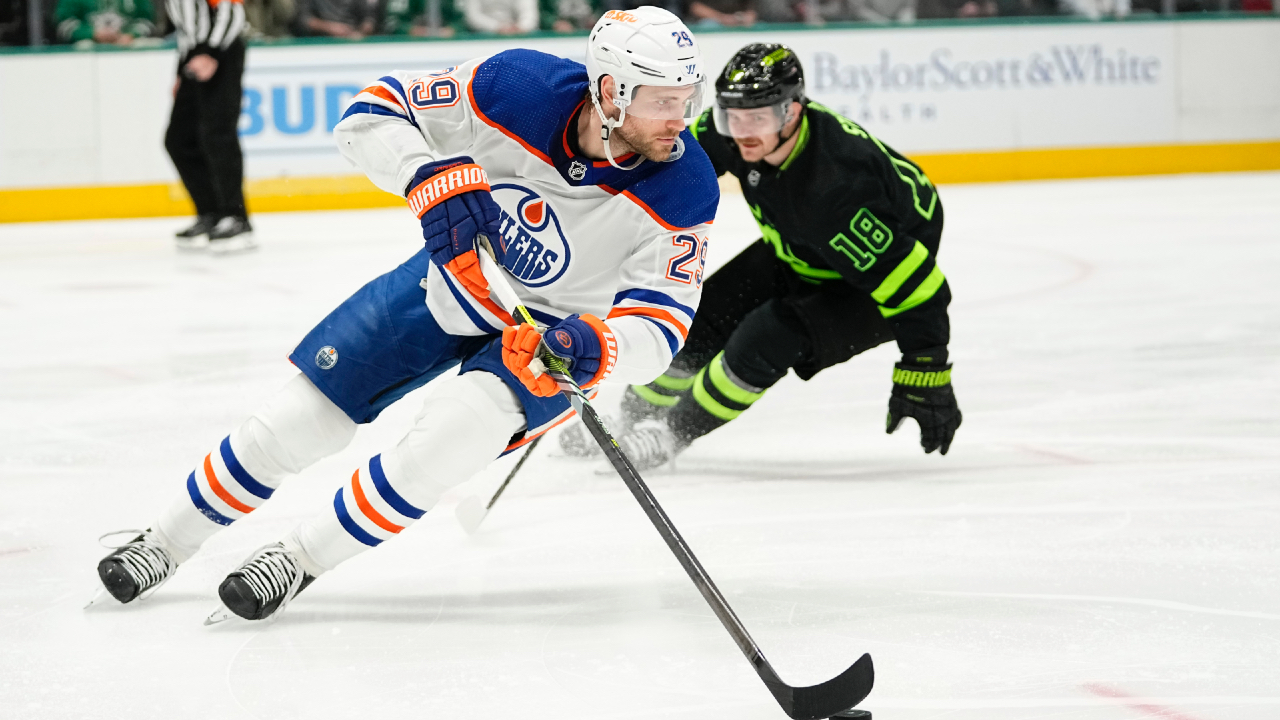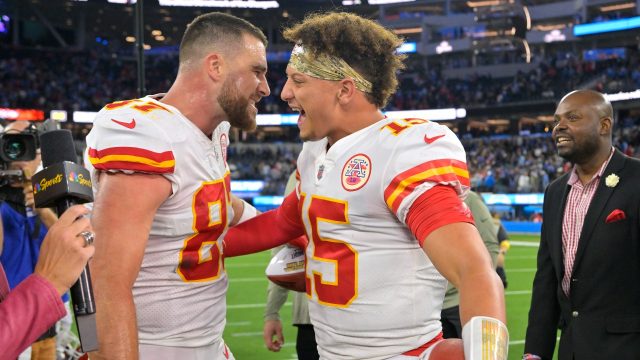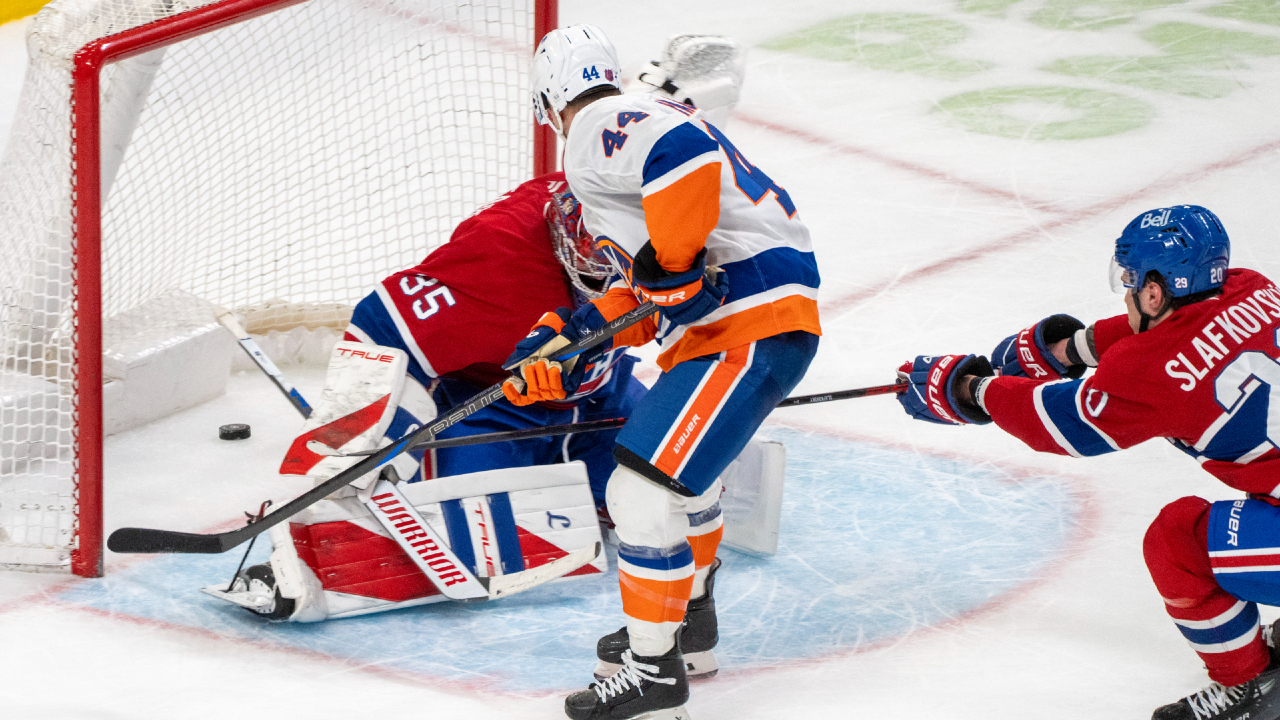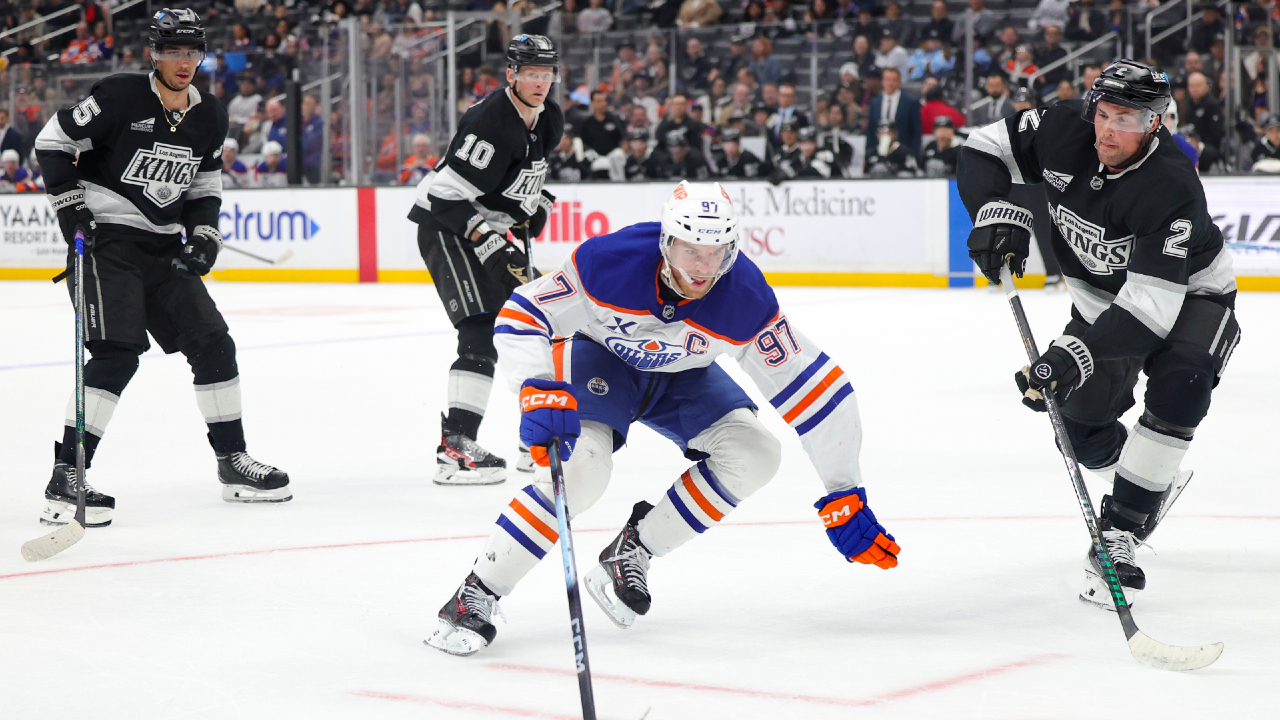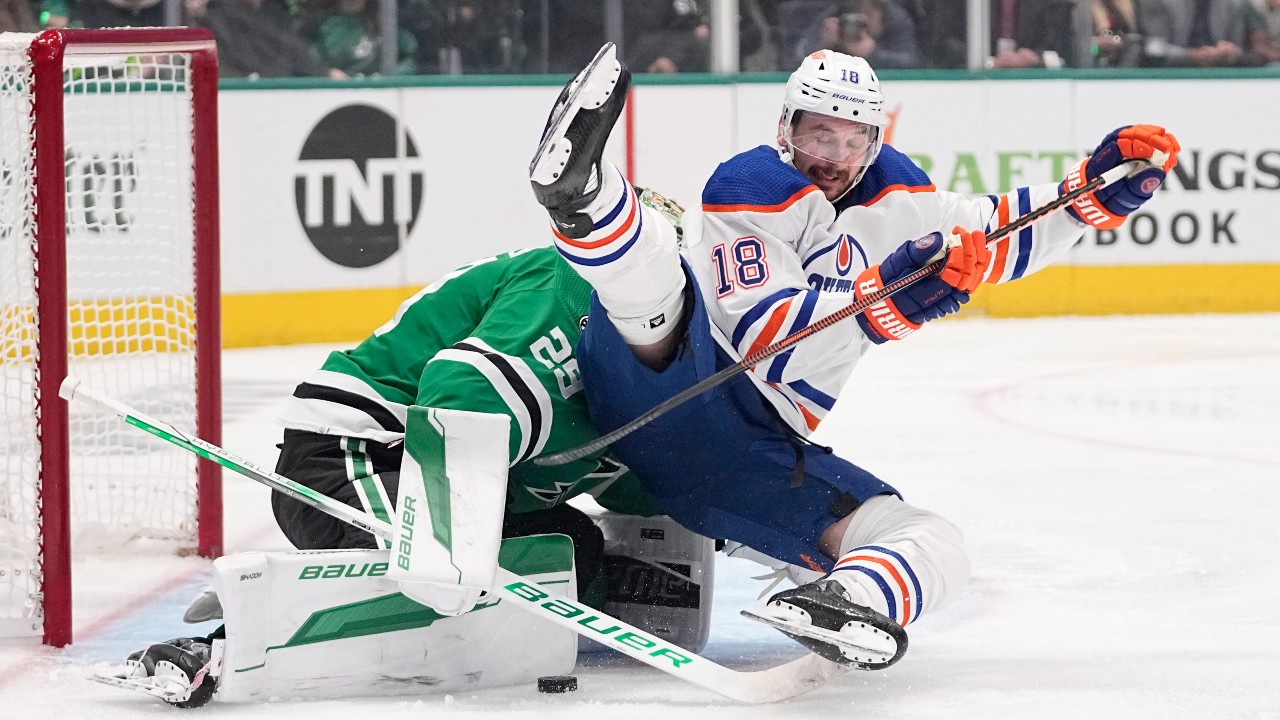
DALLAS — The curlers call it being on the wrong side of the inch.
A Mason Marchment deflection that bounces perfectly under Stuart Skinner’s arm, a Mattias Ekholm blast that’s heading for twine but blisters off the knob of Jake Oettinger’s goal stick. That’s the tiny, luck-of-the-draw difference in a 3-1 loss in Game 2 at Dallas, in a game that — for a long while — was there for the taking by Edmonton.
“We had a big opportunity here tonight,” lamented Oilers captain Connor McDavid, “and we didn’t capitalize.”
The Oilers had more offensive-zone time, more controlled entries and zone exits, and generally led in all the numbers that matter less. The biggest of those was likely a first-period shot clock that read 16-4 in Edmonton’s favour, in a period that ended with the teams tied at 1-1.
Edmonton needed more out of that start than a tie after 20 minutes, but couldn’t find that second goal.
They needed a play. From someone, anyone.
Evander Kane, whose reputation is as a big-game player, led the team with five shots on goal but had two gold-plated opportunities on which he could not deliver.
“The margins are small, it’s a tight game. The difference is a little tip in front,” McDavid said. “Lots has been made about their depth, the team they are, but we’re a deep team too and we can roll four lines with anyone.”
So now we’ve seen the Oilers win a Game 1 that easily could have fallen Dallas’ way, with the Stars taking a Game 2 that was every bit as much a coin flip.
Skinner has been no better or worse in goal that Oettinger — both have been fantastic — and oldsters Jamie Benn and Tyler Seguin have combined for more points than McDavid and Leon Draisaitl, who had his 13-game playoff point streak snapped Saturday.
“We had our looks,” Ekholm said. “I hit the knob with four minutes to go. It’s a 2-2 game at if that goes in. It’s just a matter of bearing down. We’re playing well enough to win, but we still have another level to our game.”
There is one area that is starting to bother these Oilers a bit, and that’s a standard of officiating that has produced just three Oilers powe rplays in two games. Their five-on-five game is strong, but if the referees are going to swallow their whistles in Round 3, that definitely does not work in favour of the team with the best power play in the National Hockey League.
Head coach Kris Knoblauch paused for a full eight seconds to choose his words wisely, when asked after the game why a team that averaged 4:26 of power-play time each night over 82 games, is averaging 2:21 per night in this series.
“That’s obviously unfortunate for us,” the quiet coach said. “We’ve got a very good power play — we win a lot of games on the power play — and it’s unfortunate for us that it’s tougher to draw penalties in the playoffs than it is in the regular season.
“The standard is the same for both teams — I’m not saying that it’s unfair for us. But we would like a same standard (as the regular season).”
McDavid had a four-word answer to the same question — “That’s a good question,” — while Ekholm was a tad more verbose.
“Great question. I have no idea,” Ekholm said. “I looked at that Darnell (Nurse interference) penalty today, and then five minutes later I get cross-checked right in the same spot in the paint.
“It’s hard, physical playoff hockey out there. It just seems to be we need to kill more power plays than we get. Whether that’s just the way it has happened or not, it’s not my up to me to really comment on that.”
The good news is, the Oilers have likely been the better five-on-five team in this series — or at worst, every bit Dallas’ equal. If they can find just a little bit more finish — an area that should be theirs in this series — they’ll be fine.
It’s the playoffs. You can’t stand around waiting for the refs to be predictable, a fact of which any hockey fan or player is aware.
“We’re back in our barn and I’m sure the fans are excited,” said Ekholm. “We’ll try to use the energy from the fans, and keep building our game.
“We got in here and got our split. Now it’s time to raise our level when we get home, and dictate the game.”


